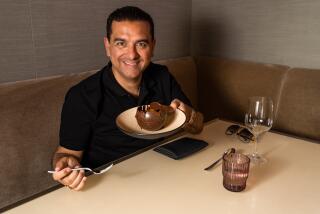Master Class: The easiest way to burnt Basque cheesecake
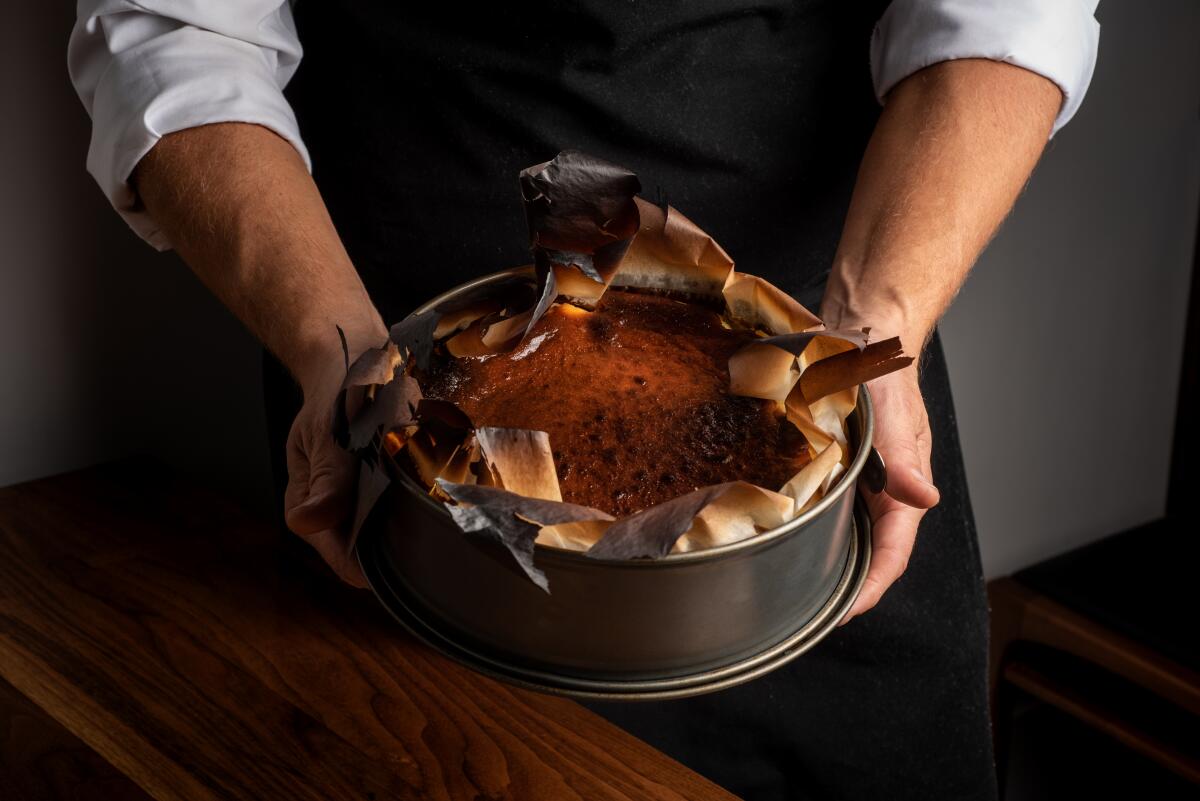
- Share via
Since opening Dialogue in 2017, chef Dave Beran has re-created the restaurant’s tasting menu every season. But one dessert has remained unchanged: the burnt Basque cheesecake. Invented in San Sebastian, Spain, and popularized in recent years — you can also catch a version at Simone in the Arts District — Beran’s oozy, crustless cheesecake is not part of the tasting menu or even available every night. It’s reserved for diners celebrating birthdays or other special occasions when the kitchen has a batch. If you can’t score a slice at the Santa Monica restaurant, go ahead and make Beran’s five-ingredient recipe at home.
Here is the story of his journey to his dead-simple dessert formula:
“I wish I had come up with this dessert. I was just trying to re-create the one I had at La Viña in San Sebastián, Spain. It was like nothing I had ever had — so burnt on top and the flavor was super clean, not blurred up by a bunch of random things.
Anytime you can blindside someone with something absolutely delicious, you win.
— Chef Dave Beran
“As soon as I got home, I went to work on producing it. There were a couple of recipes online, but nothing turned out right. As a chef, whenever you look at something, you start to overthink it. So I tried whipping cream first and partially cooking the custard before baking. When I got the color, the texture was grainy and vice versa.
“I didn’t want to reinvent it because the original was so good, so I started over at zero. I put myself in the position of the La Viña baker making 20 cheesecakes in a tiny pintxos bar kitchen with one oven. It had to be simple. I don’t have La Viña’s recipe, but I finally tried just combining the ingredients and baking in a super-hot oven. It took a solid three months to figure that out.
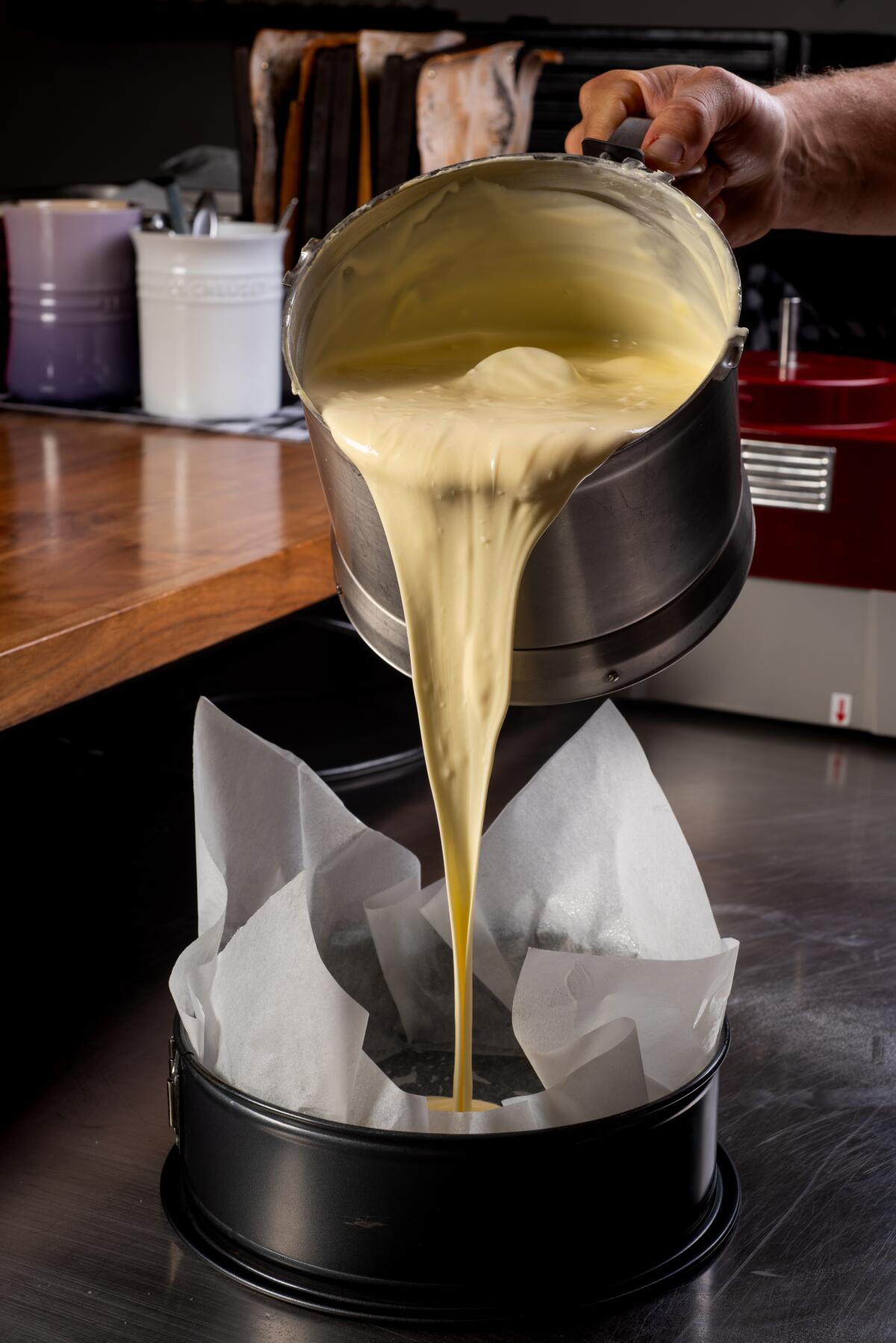
“The unique structure comes from baking in an oven so hot the outside burns, but the custard stays smooth. There can’t be flour or cornstarch because the center never gets hot enough for the starch to cook through and it ends up grainy.
“It is different from the original though because I refrigerate it. At La Viña, they slop it on your plate and it’s running all over, so you know how melty it’ll taste. At Dialogue, I make it more deceiving and more surprising by giving it structure while keeping it oozy. We cut it cold to get neat slices, then clean up the edges so it looks like a slice of cake. But when you cut into it to eat it, it melts instantly. Every time someone has it, they’re blown away by it. I think anytime you can blindside someone with something absolutely delicious, you win.”
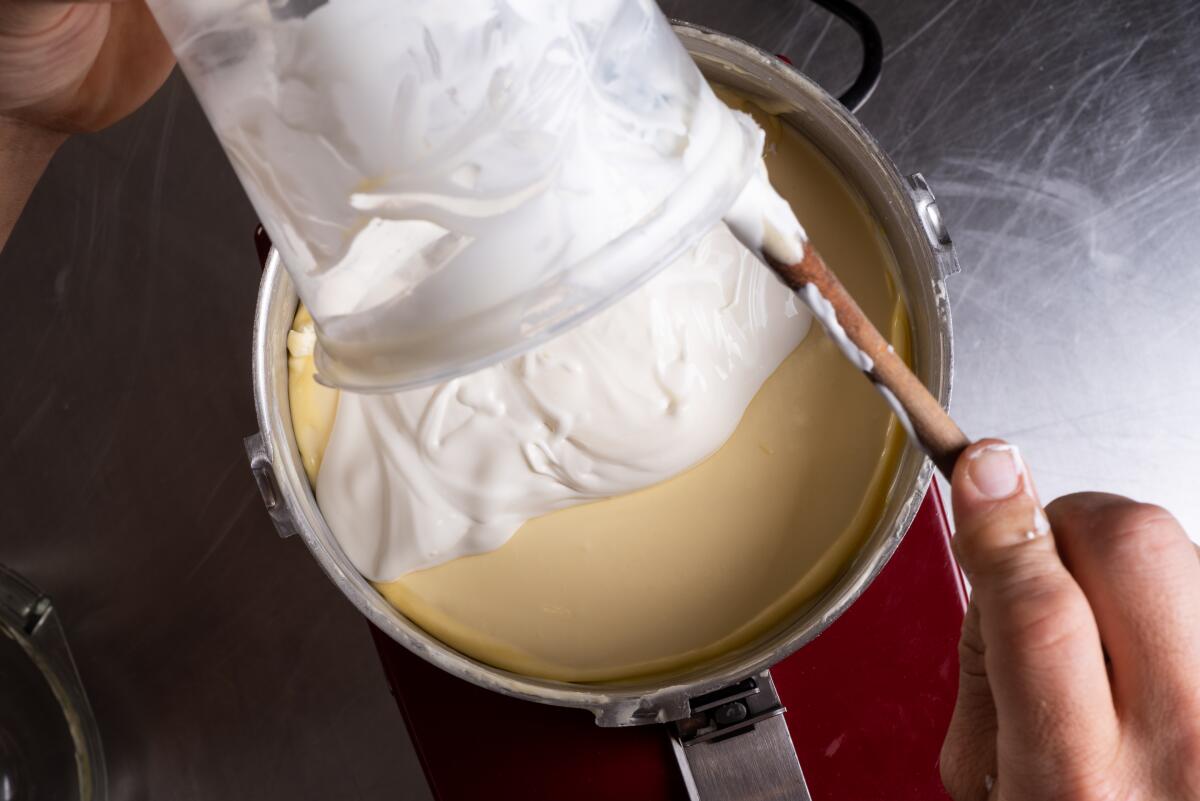
And you can win with this recipe. There are only five ingredients, and two are sugar and salt. You basically get out the ingredients, blend them, throw it in the pan, and bake it off. But there are things to watch out for:
- The oven has to be the right temperature. Make sure it’s fully heated (not on convection) before you make the batter. If you have an oven thermometer, use it and adjust your dial to get to and keep it at 450.
- Use a food processor for the batter; it can overmix then break if made in a stand mixer.
- Use Philadelphia cream cheese; other brands don’t work as well.
- Once the cake is in, watch it. (But don’t open the oven until the timer goes off.) If the top starts to turn black all over, that means your oven is too hot; turn the heat down. If the top isn’t browning, turn the heat up. You can open the oven and start checking at 20 minutes.
- Shake the pan; the edges should be set and the middle should be really loose and jiggly, like Jell-O when it’s still setting. If it were cake, there’s no way you’d think it’s done.
- Don’t overbake it. If you do, you lose the custardy texture. If you underbake it, you won’t be able to cut a clean slice, but it’ll just be creamier. Always err on the side of under.
- After you remove the cheesecake from the oven, don’t rest it on top of the stove. That residual heat can cause it to overcook.
- When it’s at room temperature, put it in the fridge uncovered. You don’t want plastic wrap to steam it and ruin the burnt top.
Basque Cheescake
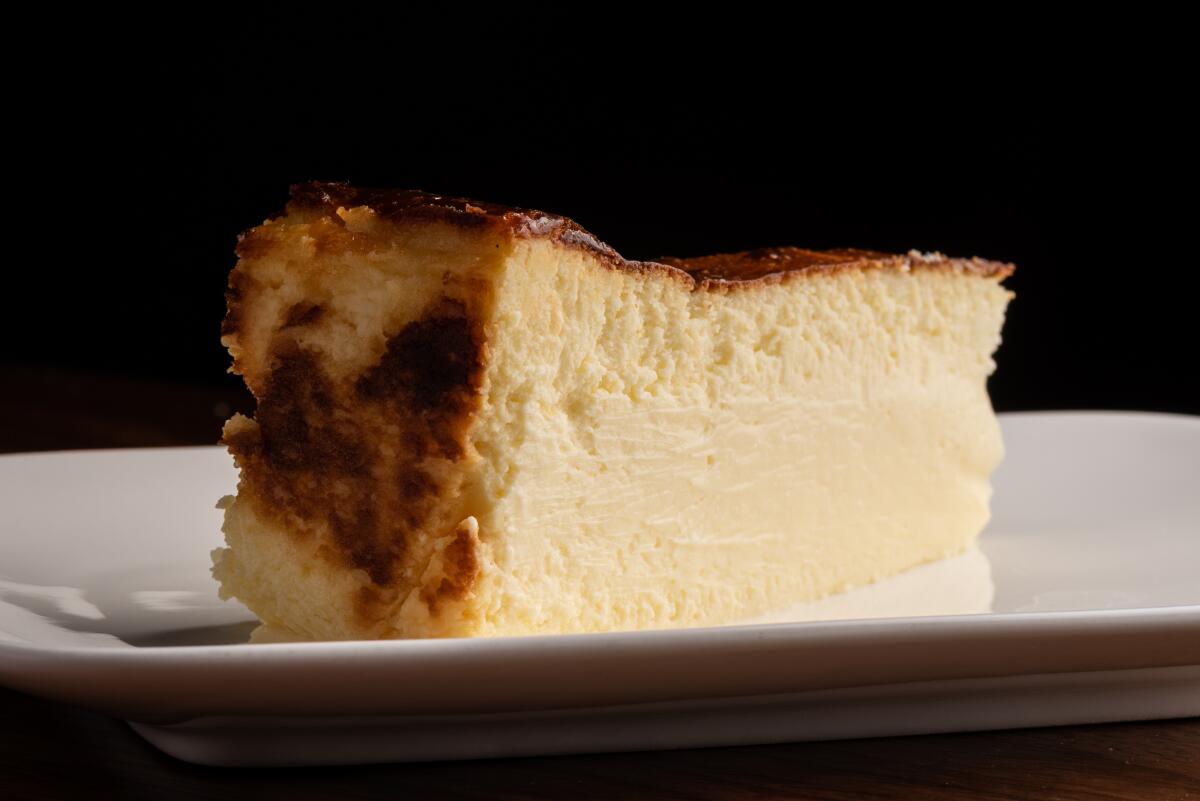
This dessert combines the flavor of an ultra-rich New York-style cheesecake with the velvet texture of custard; crème fraîche accentuates the tang of cream cheese while the nearly burnt top balances the sweetness of the batter.
35 minutes plus cooling and chilling. Makes one 9-inch cheesecake
Ingredients
- 4 (8-ounce) blocks cream cheese, cut in 1-inch chunks
- 1 1/3 cups sugar
- 9 large egg yolks
- ½ teaspoon kosher salt
- 1 ¼ cups crème fraîche
Instructions
- Heat the oven to 450 degrees with rack in bottom third.
- Coat a 9-inch springform pan with cooking spray. Line with a 15-inch square of parchment paper, pressing it into the bottom and up the sides so that it extends above the rim of the pan. Crease and fold the paper as needed to keep it flat. Spray the parchment.
- Put the cream cheese, sugar, egg yolks and salt in a food processor. Pulse until very smooth, scraping the sides of the bowl occasionally. Add the crème fraîche and pulse until fully incorporated.
- Pour the batter into the prepared pan, then tap the pan against a work surface a few times to smooth the top and eliminate air bubbles. Put on a half-sheet pan, then put in the oven.
- Bake until the top is dark brown, the edges set and starting to pull away from the sides of the pan, but the center is still quite jiggly, 20 to 25 minutes. If you shake the pan back and forth, the top should roll like a gentle wave.
- Cool in the pan on a rack until room temperature, then refrigerate uncovered overnight.
- To serve, release and remove the sides of the pan. Use the parchment to slide the cheesecake off the base onto a cutting board, then pull down the sides of the parchment. Use a sharp knife to cut slices, wiping the blade clean after each cut.
Make ahead: The cheesecake can be refrigerated for up to 3 days.
Note: Adapted from Dave Beran
More to Read
Eat your way across L.A.
Get our weekly Tasting Notes newsletter for reviews, news and more.
You may occasionally receive promotional content from the Los Angeles Times.


